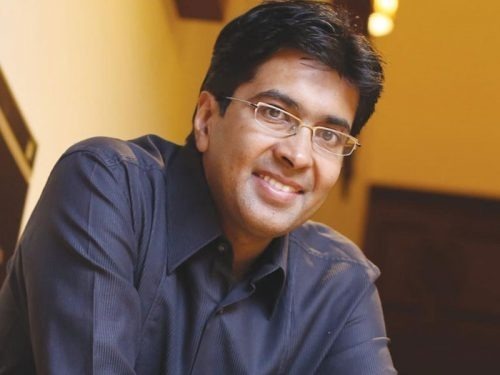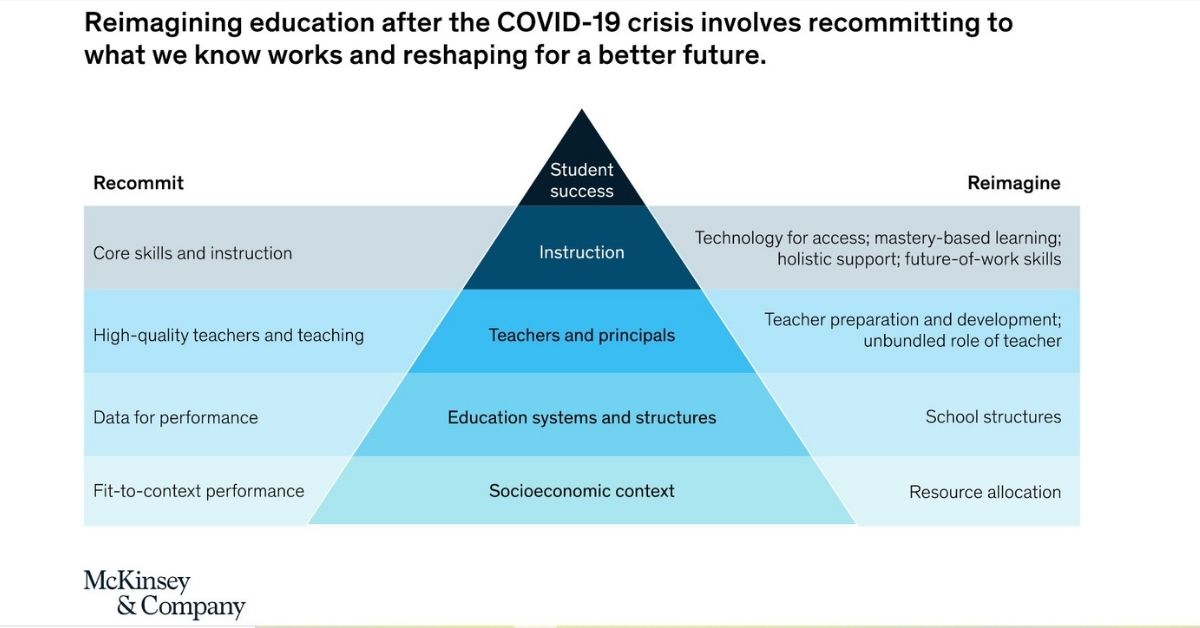 – Saurabh Modi, Founder-Chairman, Neerja Modi School, Jaipur
– Saurabh Modi, Founder-Chairman, Neerja Modi School, Jaipur
Education is the cornerstone for development and growth, for an individual and society at large. It’s an equalizer and the most effective tool to build a more inclusive and diverse world. Education sector has consistently evolved through generations and is continues to do so – staying relevant and resilient, to the changes and challenges it faces at the helm of worldly affairs. The pandemic disrupted learning on an unprecedented scale and propelled the education sector to a seismic shift. Global organizations such as UNESCO have acknowledged that the on-going task of learning from the crisis and efforts to mitigate its effects on education.
Educators worldwide were jolted into adapting online teaching method overnight from a traditional method. Learning continuity was ensured through distance education: digital, blended or hybrid learning have become part of the new learning reality which all Governments, teachers and learners will have to adapt. As mentioned in UNESCO’s India case study (Situation Analysis on the Effects of and Responses to COVID-19 on the Education Sector in Asia) – It’s important to explore opportunities to build back better and to re-imagine education; to shift from fact-based didactic methodologies to competency-based approaches, which are more flexible, better respond to the holistic needs and aspirations of all children, and provide opportunities for life-long learning as per the Sustainable Development Goals (SDG) 4 agenda.
Crises often create an opportunity for wider change. As we begin to make decisions about investments for future, it’s important to reconsider the longer-term imperative to create a better system for every child beyond the pandemic.
McKinsey’s insight on education suggests that school systems recommit to four basic principles and consider eight ideas for innovation (exhibit).

Source: McKinsey & Company
As an educator, we have our trust rooted in the philosophy of life-long learning and holistic education. Our round-the-year specialized training programs for teachers, focus on innovation-led teaching pedagogy and strong alumni/industry association; assisted us to provide seamless learning to our students. Our teachers were committed to providing real-time support and feedback to the students. The school also created peer-peer networking forums and alumni mentorship, to help our students navigate through the unforeseen changes. Responding to the crisis that Covid-19 brought unto our system, we have built on our experience of knowing what works, while understanding what we know the students will need. Here’s what we believe would help educators avert crisis and embrace more radical innovation, rethinking some fundamental elements of how we have educated students for generations.
Better basics
As educators, it’s critical to refocus on getting the basics right – strengthen core skills such as reading, critical thinking and problem solving. Research has identified the curricula, instructional materials, and teaching methods that are most effective in helping children learn. And the earlier that children get exposed to those skills, in prekindergarten or other programs, the better. Experiential learning will help children learn better through a combination of kinesthetic, auditory, visual and reading/writing methods. We know that every student learns differently, ensure that they have a solid foundation to prepare them for life-long learning.
Enable teachers to navigate learning
Teachers are at the heart of education; they place a key role in shaping young minds through their teaching expertise and relationship with students. Invest in preparing teachers with relevant training, reskilling/ and upskilling. Leverage technology to support teachers to exceed at their craft and mentor students to successful careers and lives.
Provide well-rounded support to students
Each student is a forming individual who absorbs and responds to situations uniquely. As educators it’s our responsibility to understand every student’s ability, aspirations and challenges; to help them thrive in an area of interest. The pandemic has alerted schools to address the whole child, helping them develop skills and awareness that go beyond equipping them for work. It’s our duty to help them become better thinkers, innovators, leaders – help them attain their fullest potential and become better global citizens.
Make students future-ready
World is evolving at a frenetic phase and technology is getting deeply integrated into our lives. The future is digitized and belongs to those who can innovate rapidly and adapt to fast-paced changes in the work environment. Get students technologically adept early, coding and digital literacy should be recognized and taught as core-skills in primary & secondary schools. Design thinking skills and math Enrichment programs could benefit students in staying relevant and competitive.
Innovate your education process regularly
Let the pandemic be a reminder to innovate the education process constantly & frequently. Revise the curriculum yearly, update your labs & resources, invite industry leaders to interact with students, strengthen your alumni network, sponsor the entrepreneurial streak in your students. Rethink your processes, re-evaluate your teaching methodology and impact better learning outcome for students; regardless of a crisis. Continuous reinvention holds the key to the success of students and educators alike.
About the author – A commerce post grad of Sydenham College, Mumbai, Saurabh Modi is founder-chairman of the Neerja Modi School (NMS, estb. 2001), which has five campuses in Rajasthan (Jaipur, Jodhpur, Chittorgarh and Udaipur) with an aggregate enrolment of 7,000 students mentored by 475 teachers.
Also read: Leaders who can revive Indian education – Saurabh Modi























